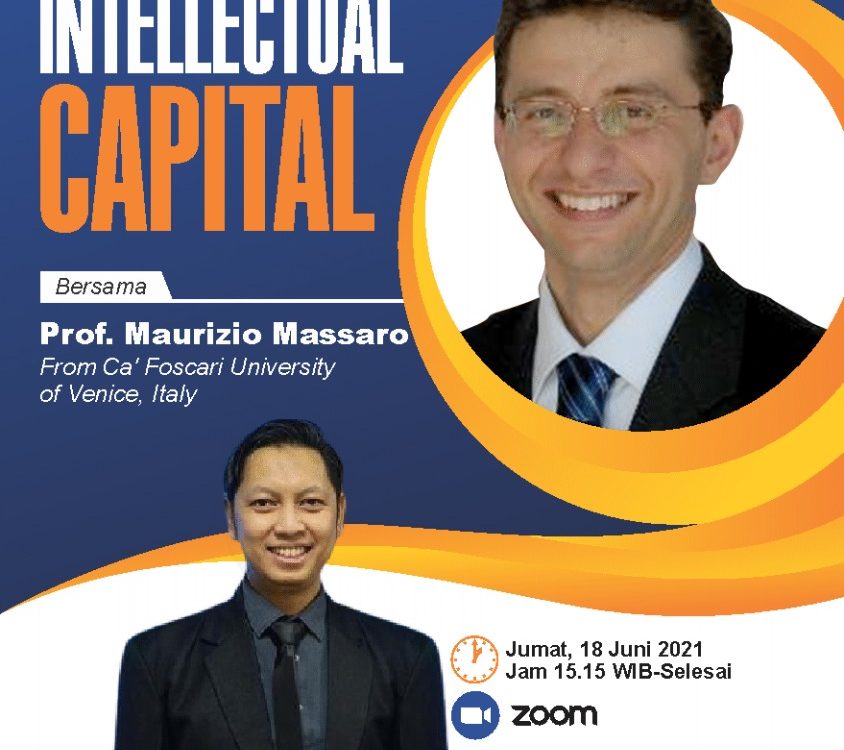
Accounting Study Program Welcomes Prof. Maurizio Massaro in Visiting Professor Agenda
The Accounting Study Program at the Faculty of Economics and Business, Universitas Sebelas Maret (FEB UNS) Surakarta, once again organized a Virtual Visiting Lecture on Friday (18/06/2021) through Zoom Cloud Meeting.
In his welcome remark, Dr. Agung Nur Probohudono, Ph.D., the Head of the Accounting Study Program, expressed his hope that all attendees could learn a lot from Prof. Massaro, and the topics presented today would expand the students’ knowledge, especially in the field of accounting.
The Visiting Lecturer is a regular agenda hosted by the Accounting Study Program at FEB UNS, which previously invited Prof. Hooi Che Wooy, Prof. Evan Lau, and Prof. Corina Yosef. The topic of Intellectual Capital presented on this occasion is important and interesting because students more often focus on accounting practices related to Tangible Assets. Hence, the material on Intangible Assets, which includes Intellectual Capital, will serve as valuable supplementary material for the students.
The event continued with the material presentation by Prof. Massaro from the Ca’Foscari University of Venice. Opening the material presentation session, Prof. Massaro explained the five parts of the material that would be delivered virtually through Zoom and Youtube Livestreaming, namely, the introduction to the Knowledge Economy, the Definition of research in the field of Intellectual Capital, and the Stages of research in the field of Intellectual Capital.
“Currently, many digital services are available for us to use for free. This can happen because the marginal cost required to produce digital products is close to zero, allowing companies to offer digital services such as Facebook, Instagram, and WhatsApp, for free,” explained Prof. Massaro. This condition is known as a free economy.
The free economy has significant implications in the accounting sector. Since almost all internet applications offered are knowledge-based products, the knowledge economy challenges traditional accounting principles, which posit that the value of a good or product decreases after use. Knowledge, however, does not follow this law because when used, knowledge increases rather than diminishes.
“This is very interesting to study because this condition has brought about significant and disruptive changes, altering companies’ business models,” said Prof. Massaro.
The visiting professor’s event goes on with the stages of research in the field of intellectual capital, measurement methods, and ecosystem perspectives. The event was conducted interactively through the Wooclap application, allowing participants and speakers to engage actively.
Reporter: Aulia
Editor: Humas FEB

